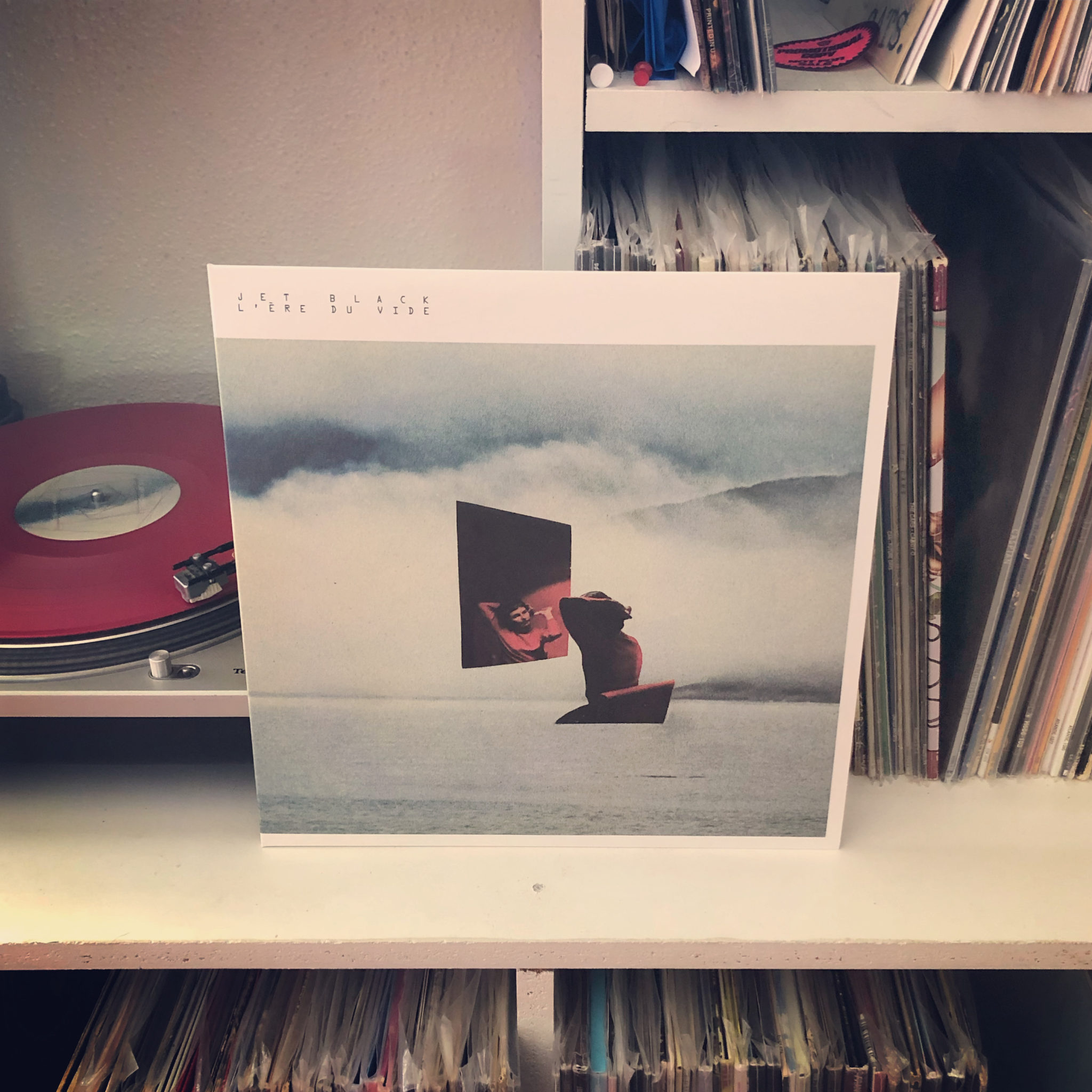
As broad as I like to think my musical tastes are, there are times that I might actually be pretty predictable.
Take for example my love of dark, guitar heavy, shoegaze inspired indie rock. So infamous am I for my love of this aesthetic that around Christmas, a friend messaged me this album on Spotify saying I would probably like it.
Later that same day, another friend sent me a vinyl copy as a present.
They were both very correct.
L’Ère du Vide (French for “The Age of Emptiness”) is the Quebecois shoegazers third full length, and it plays with the sure-footedness of a band that knows themselves. Though there are subtle notes of influences (Dinosaur Jr., Swervedriver, Sonic Youth) and contemporaries (Cloakroom, Nothing), the group suffers no identity crises throughout the eight songs on this disc.
Their sonic palette is relatively paired back as far as shoegaze bands go. The guitars use primarily reverb, delay, and overdrive—any additional modulation is subtle if it’s present at all. And yet, there’s nothing missing from their walls of sound. The songs burst with crushing bass chords, urgent drums, and soaring guitars while lead singer Stéphanie Vézina coos gently, switching between English and French, unperturbed by the surrounding storm of instruments.
Compositionally, the group is a bit more sophisticated than most other shoegaze groups. The songs shift mode between lines, borrowing chords from other keys and modulating between major and minor on a dime. At times, their harmonic sensibilities seem reminiscent of Spiderland by Slint or Sunny Day Real Estate’s LP2—both strange and gorgeous pieces of music.
In the run up to the album, the band described it as a response to modern culture’s demand for instant gratification—an intentional slowing down to create something that matters to its creators. And throughout its runtime, L’Ère du Vide carries its own weight, fully aware of the gravity of its statement. At times, the record carries an urgency that feels like the band knows this might be the only thing they could ever say to the world. At other times, it is slowed and hushed, inviting the listener to lean in to glean the truth of the matter.
Artist statements and philosophical goals aside, the record sounds great. “Dissonant Echoes” opens with a jangling electric guitar alternating between a major and minor chord on the same root, drums riding on the rim of the snare while the bass runs a counter melody. The chorus explodes with a torrent of guitar noise and crashing cymbals, Vézina’s voice singing a long-noted melody.
“L’Ère du Vide” slows the tempo down a bit, but what it lacks in urgency it more than makes up for in heaviness, alternating between crushing and beautiful choruses and angular, atmospheric verses. “Like Gravity Wells” is driven by a jaunty drum beat and cloudlike guitars that just vaguely threaten rain.
“Little Did We Know” opens with an acoustic guitar strumming an odd chord progression, joined by a sparse arpeggiated guitar, an asymmetrical drum pattern, jumping bass, and Vézina’s wafting voice. Closer “Temporary State” broods with a dark intensity, the chugging bass guitar never turning off the overdrive, even through the quieter verses. Guitars pick over arpeggios in strange chord pairings as the drums and bass play so loudly it sounds like they’re trying to break their gear.
The record is only thirty-seven minutes long, but for all of its heft and import, it feels much longer. Despite the initial accessibility of the songs, the intricate composition makes them feel alien in a way, demanding multiple listens to let the record unfold to you. And I absolutely intend on giving Jet Black those multiple listens.